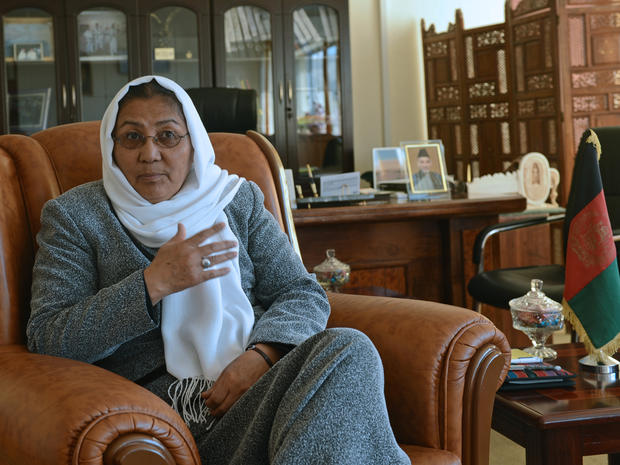Afghanistan: Transition needs investment, involvement to replace troops in 2014
By CBS News producer Erin Lyall
KABUL The date "2014" looms over this country like an unblinking neon sign, a coming attraction no one wants to see. The more people here talk and fret about the pending departure of Western troops, the more it becomes a self-fulfilling prophecy -- it becomes a year in which things will change, and insecurity could return.
Already, people are leaving, and they aren't part of the official drawdown. The director of one conservation group told me he discovers every week that another NGO friend has left the country -- Afghans and foreigners alike. They pretend to fly out for a conference, and they just never come back.
Afghan Americans who had returned to their country to build businesses are slowly squirreling money out of it, unsure if the banks will survive in a few years' time. They are still desperately rooting for their country to succeed, but they're not quite willing to bet on it.
- Afghan entrepreneurs fear "artificial" economy's collapse
- 2 NATO troops killed in Afghan attack
- Pakistan frees Taliban militants for Afghan peace talks
The false economy borne of the last decade is starting to fray at the edges. The restaurants and cafes so popular with Westerners have been empty all month, straining an industry that already lives within tight margins.
Factories that used to produce military uniforms and gear are shutting down as orders dry up. There's no domestic garment industry to reemploy the workers because raw materials are cheaper in Pakistan, and must be imported here.
Afghan companies that have provided services to foreign troops and government agencies -- security, technology, communications, and transportation -- are finding themselves with fewer clients every day. An analyst with Kabul-based research company Samuel Hall tells CBS News that while the "official" unemployment rate here is under 10 percent, in reality, closer to 70 percent of Afghans are un- or under-employed. That number will grow as 2014 approaches.
The question is whether the instability that comes with the drawdown -- the economic, social, and political instability -- will lead to insecurity. Can this country survive the stress of walking on its own two feet? Or will unsteadiness open the door to warlords, al Qaeda, or Taliban leaders who promise something more secure?
Habiba Sarabi is the first and only female governor in Afghanistan, and has been instrumental in making Bamiyan province the safest in the country. She tells me that a rumor is circulating: when 2014 arrives the Americans and NATO will leave entirely, except for a small cadre of officers who will never leave their bases.
That is her fear: that Westerners will stay on-base, behind their blast walls.
"We are happy the Afghan government will take responsibility for the security," Sarabi tells CBS News. Yet she worries about a repeat of 1992, when she says "the international community left us alone, and the civil war started."
What Afghanistan needs, she says, is economic, political and social support and involvement with the outside world. That, Sarabi says, can help smooth the instability, keep an eye on corruption, keep investers' money flowing into the economy, keep pushing for women's rights, keep schools and hospitals and clinics open.
A smooth transition in 2014, and beyond, is not about the military. It's about everything else.
